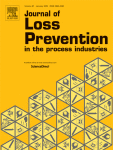|
Autores/as
Amaya, N.; Rovira, M. D.; del Cerro, S.; Grillo, M. ; Nomen, R. ; Nomen, R. ; Sempere, J. ; Sempere, J.
|
Abstract
The main hypothesis of this work is that it is possible to create a safety culture not only in industrial or commercial organizations, but also in educational institutions. The goal is communicating a culture of safety to their students, which will be spread by the new professionals. Consequently, the objective of this paper is showing the results of first steps of application – establishing the baseline – of the Gaining Distributed Safety – GDS – tools to the academic community of the Universidad Centroamericana "José Simeón Cañas" (UCA) of El Salvador. GDS tools establish those aspects to which attention should be posed in order to achieve excellence in safety. Also enables analysis to recognise the weaker aspects of safety, so corrective actions can be taken.
Before applying any improvement action according GDS, the initial parameters to measure the culture of safety in UCA were established. Special versions of the AsSeVi Survey Tool were developed and checked out. The first one was adapted to academy and administration of UCA. The second, to students. Both communities showed similar characteristics according GDS, opening the door of improving the safety culture of students working only with academy. Finally, the JST Safety Survey and a traditional behavioural safety observation activity were used to establish reference indicators. Use a handrail in stairs and walking watching cell phone are two excellent potential possibilities to be used as indicators.
|

WoS
Scopus
Altmetrics
 
|
